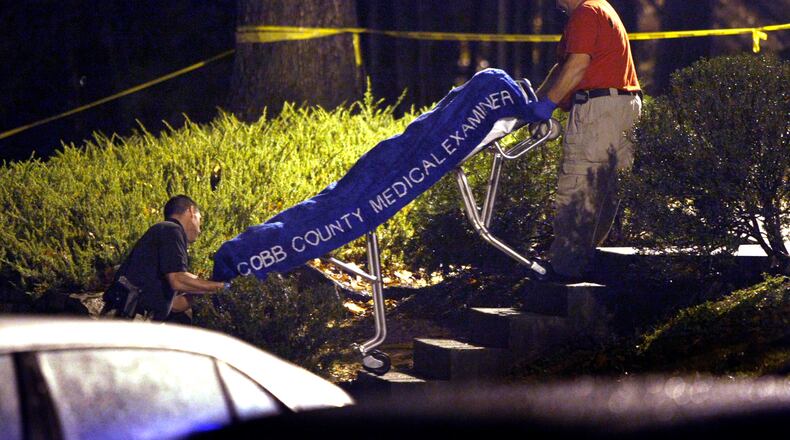Cobb County Chief Medical Examiner Dr. Christopher Gulledge said a new lab is on the horizon after a local activist who spearheaded a push to reform the office raised concerns about a possible delay.
Gulledge took over in 2015 after the previous chief medical examiner, Dr. Brian Frist, who was not a board certified forensic pathologist, retired under a cloud of citizen complaints and a critical county audit.
That audit called for additional oversight and improvements to the office. Voters later approved a new lab for the medical examiner as part of a list of projects funded by the 2016 special one percent sales tax.
Gulledge, who is a board-certified forensic pathologist, said his ultimate goal is for Cobb’s facility to win accreditation from the National Association of Medical Examiners. NAME determines accreditation based on a checklist of more than 300 standards pertaining to policies, protocol, staffing, equipment and working conditions. Georgia law does not require accreditation, which is voluntary.
“We’re just not going to get there until we have a new facility,” Gulledge said, adding that the current building was constructed in the late seventies. A new facility could be bigger, with surfaces that are easier to clean and a state-of-the-art ventilation system, he said.
The public most often associates medical examiners with law enforcement because they are responsible for determining the cause and manner of death, which can be used in criminal court cases. But Gulledge said medical examiners consider themselves public health physicians.
“We serve as a surveillance for our community,” he said. Medical examiners help track outbreaks of disease and addiction-related deaths, for example.
The chief medical examiner said he plans to initiate a needs assessment, the first step in building a new lab, this fall. Neither a budget nor a definitive timeline for the project have been established, he said.
"Sadly it's a slow going proposition," Gulledge said. "I feel like we're doing the best we can as fast as we can."
Cobb resident Tom Cheek led the charge to reform the medical examiners office after accusing Frist of mishandling the autopsy of his son who died in a fire nearly four years ago.
“I went to the scene where he died and I had to pick up pieces of him and put them in a bag and carry it to the medical examiner’s office,” Cheek said. “I don’t want this to happen to someone else because it was horrible.”
Cheek also wants a NAME-accredited facility.
“Right now you’ve got a board of commissioners and a county manager overseeing a doctor,” he said. “They’re not qualified to do that.”
Cheek called the personnel changes at the medical examiner’s office a “big step in the right direction,” but fears the county is putting the lab on the backburner. He points to the expedited construction of a public safety headquarters and training facility, also a 2016 SPLOST project, and a bridge over Interstate 285, which was not on the list but is being built partially with local match SPLOST funds.
Kellie Brownlow, chief executive to County Chairman Tim Lee, wrote in an email that the chairman was unaware of the project schedule.
“It is a Tier 1 project,” she wrote, referring to top-priority SPLOST projects. “2016 SPLOST funds are not being diverted from the Medical Examiner’s Office, or any other SPLOST project, to fund the I285 Multi use bridge.”
David Fowler, Maryland’s chief medical examiner and president of the National Association of Medical Examiners, said accreditation was an important tool to “keep the county administration honest.”
“They have to provide a certain level of resources for the office to function, otherwise you can’t afford everything on the checklist which are essential,” Fowler said.
About the Author
Keep Reading
The Latest
Featured




